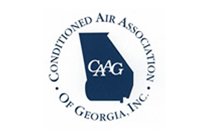An air conditioner breakdown in the middle of summer can be the worst thing to happen to you. You may have heard a lot of reasons about why an air conditioner breaks down, but Central Heating and Air Conditioning is here to put an end to your speculations. Read on for a comprehensive list of why a cooling unit can break down and when is the right time to call for air conditioning repair.
While the weather tends to be a bit on the warm side in most parts of Atlanta, late spring and summer can be rather brutal. The temperature can get as high as 90 degrees F and sometimes even higher during the peak of summer. If you live in Atlanta, knowing that your cooling unit will perform at its best efficiency when you need it will provide you peace of mind. However, many homeowners are unaware of the issues an air conditioner can develop. One such common issue is a bad air conditioning processor.
Before we go into the reasons an air compressor can go faulty, let us understand what it is.
The air compressor is the heart of your air conditioning system. It is this component that pressurizes the refrigerant that runs through an air conditioner. This allows the refrigerant to absorb the heat from the air circulating in your house and release it outdoors. The refrigerant also cools the air and returns it indoors.
The refrigerant flowing through your air conditioner cycles from gas to liquid and from liquid back to gas. This process kicks in when the air compressor converts the low-pressure refrigerant to a high-pressure-high temperature gas. Thus, the gas formed slowly makes its way into the condenser and converts the refrigerant into a cool liquid that enters the evaporator coils, where it is turned back into gas. This cycle repeats itself again and again and releases the hot air outside and pumps cool air indoors.
Signs and Symptoms of a Bad AC Compressor
1. Hot Air Not Being Released Outdoors: When your air compressor is working efficiently, it will take hot air from the inside of your home and release it outside. If you think your air conditioner is not cooling your house properly, you can check to see if the compressor has developed a snag. To do so, hold up your hand near the fan on your cooling unit. If the air is lukewarm or even cooler, it is a tell-tale sign that your air compressor is faulty. This could also be a sign that you are dealing with a refrigerant leak. Do not ignore a refrigerant leak, as this can put a strain on your compressor and cause it to fail.
2. Loud or Strange Noises: If you hear strange sounds emanating from your air conditioner, odds are you have a problem that needs to be investigated. To do so, have a friend or a family member turn on your cooling unit while you stand outside beside the unit. If your unit is functioning as it should, it will start smoothly, and you will be able to hear the compressor and the fan run smoothly. On the other hand, if the unit begins to make loud vibrating or rumbling noises, the odds are that you will need cooling repair in Atlanta, GA. Rumbling noises, banging noises, popping sounds, clicking, clattering, growling, or screeching sounds could indicate that your compressor has electrical problems. Often, loud noises could be indicative of the fan that has gone loose inside the housing. If your unit heavily vibrates when started, it could be because your compressor is hard starting or, in other words having trouble starting. This is a tell-tale sign that your air compressor is about to die. You should call in a reliable HVAC technician to diagnose and fix the issue in any of these cases.
3. Failure to Turn On: If your air conditioner is not cooling your house to the temperature you have set on the thermostat, you must immediately check the condensing unit installed outside your house. If you can hear the fan running but do not see the compressor working, you have a problem that needs immediate attention. If your air conditioner is aging and is over 15 years, it may be time to replace the whole unit as failed compressors are expensive to replace.
4. Circuit Breaker Tripping: If your circuit breaker is tripped too often, it might indicate an air compressor problem. A circuit breaker generally trips when too many appliances are turned on simultaneously, which causes the system to overload. If your condensing unit repeatedly loses power or trips a circuit breaker, your compressor is faulty. This is a sign that your air compressor is overheating and probably needs replacement.
5. Leaks Around Your HVAC Unit: Puddles in and around your air conditioner unit are yet another tell-tale sign of a refrigerant leak. This can be potentially hazardous and cause numerous health ailments such as headaches, irritated eyes, nausea, and coughing. A leak beside your unit is often caused due to a blocked or broken drain tube, which means that the tube can no longer remove condensation. If left unattended, this can lead to serious air compressor issues, which may warrant a replacement.
6. Warm Air or Reduced Air Flow: When an air compressor fails, you will get only warm air out of your vents. Likewise, reduced airflow also is caused due to a failing AC compressor. Reduced airflow may be hard to spot; however, if you suspect that your air conditioner is not working as it should, put your hands near the AC vents to feel the airflow. If the air coming out seems weak or warm, it is a sign that your air compressor is either low on refrigerant or failing.
Aside from the signs mentioned above, a sudden rise in utility bills could also indicate a failing air compressor. If you suspect something is amiss, but cannot put a finger to it, contact Central Heating and Air Conditioning. Our technicians have years of experience in diagnosing and repairing all kinds of HVAC issues. We work weekends and after hours and are just a phone call away. Call us today at (404) 261-2280 to schedule an appointment.


















